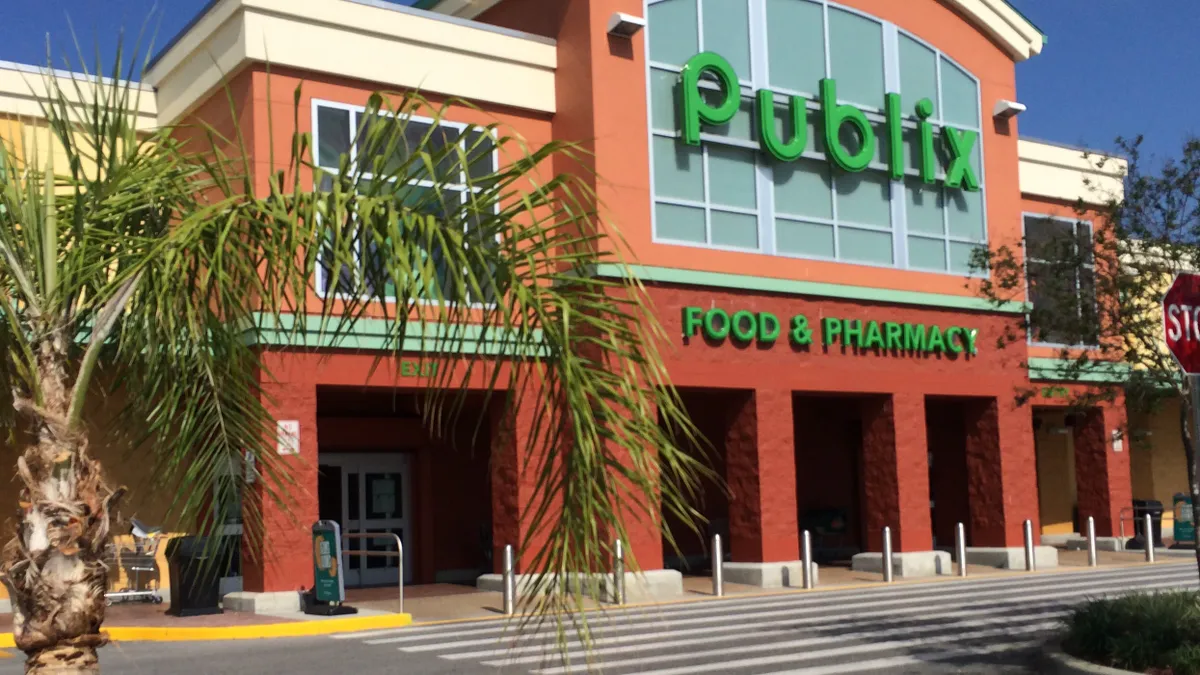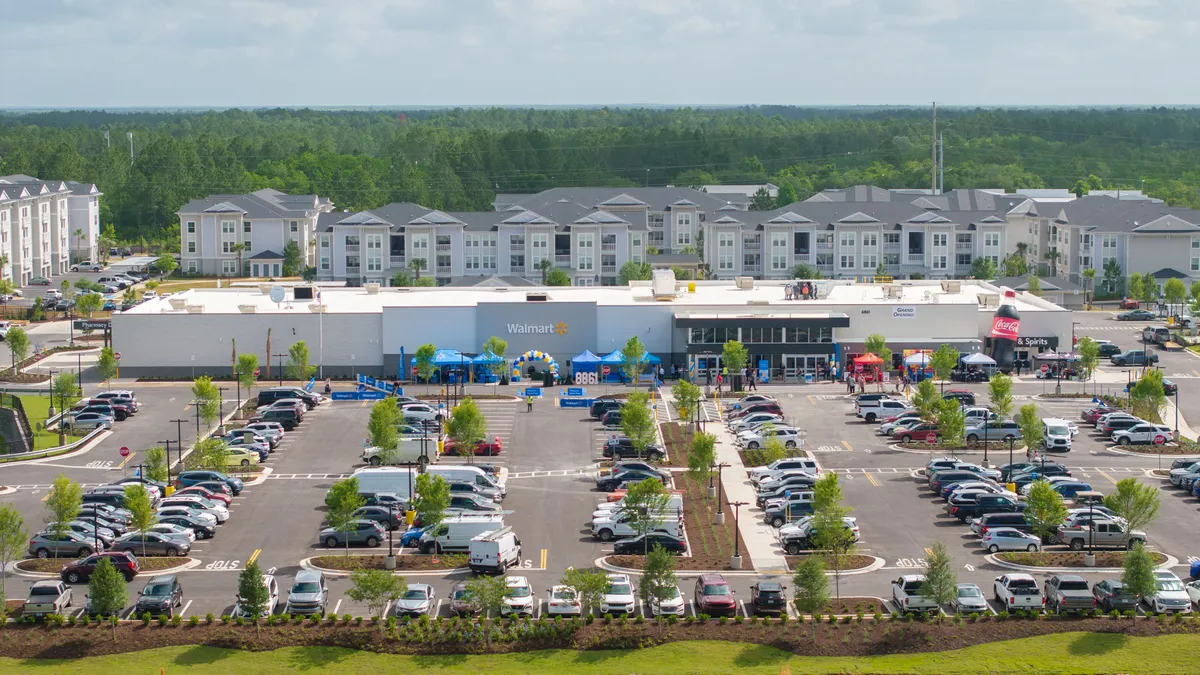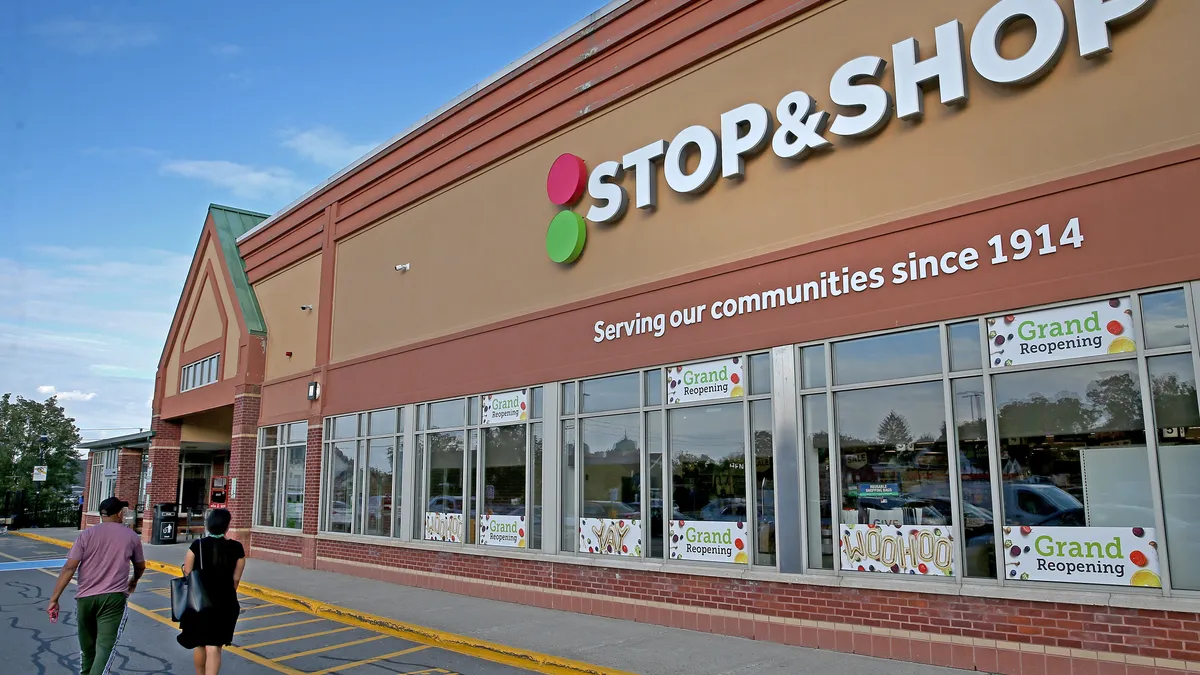Dive Brief:
- Publix sales during the third quarter were $8.5 billion, a 6.2% increase from $8 billion a year earlier. The company estimates sales increased 3.1% due to the impact of Hurricane Irma for the third quarter of 2017, according to the company.
- The privately owned company’s same stores sales rose 4.3% while net earnings hit $475 million, a 12.8% increase from the same period last year. The price of its stock price, which is not publicly traded and is made available for sale only to current Publix associates and members of its board of director, rose $0.80 to $36.85 per share — the first increase after declines in this year’s previous two financial quarters, according to the Orlando Sentinel.
- Publix’s sales so far this year are $25.6 billion, up 3% from the same time last year. Earnings per share increased to $2.01, up from $1.92 through the first nine months in 2016.
Dive Insight:
As Florida’s top grocer with decades of experience operating in the state, Publix knows how to handle a hurricane. According to the company’s filing with the Securities and Exchange Commission, most of the stores impacted by Hurricane Irma, which struck in early September, reopened within two days of closing. All but one store — a location in Key West — reopened within six days.
“We have faced many hurricanes in our past, but none with the size and impact of Hurricane Irma,” Todd Jones, Publix's CEO and president, said in a statement.
The grocer’s preparedness paid off. The sales increase more than made up for the $25 million Publix paid for repairs, clean up and lost inventory due to power outages.
Natural disasters aside, Publix opened 27 stores in the third quarter while closing nine poor-performing locations. It also remodeled 100 outlets.
In addition to growing stores in its home state, where Publix enjoys incredible customer loyalty, the retailer is pushing up the east coast into states such as North Carolina, Virginia and Tennessee. This summer, Publix opened its first store in the hotly contested Richmond, Virginia market, its first of 10 stores slated to open in the city.
Publix is under enormous pressure these days. Competition is heating up in Florida, with discounter Aldi, along with low-price specialty grocers like Lucky’s Market and Sprouts Farmers Market, building stores. At the same time, it’s having to fight hard to acquire customers in the fiercely competitive mid-Atlantic market.
Publix’s service-focused model hasn’t changed much over the years, but analysts recently interviewed by Food Dive say it should continue to pay dividends for the company. In Richmond, shoppers are still feeling the loss of Ukrop’s, a local favorite that closed its doors in 2010. Observers see Publix, which offers similarly high quality, execution and service, as a likely candidate to fill that void.










